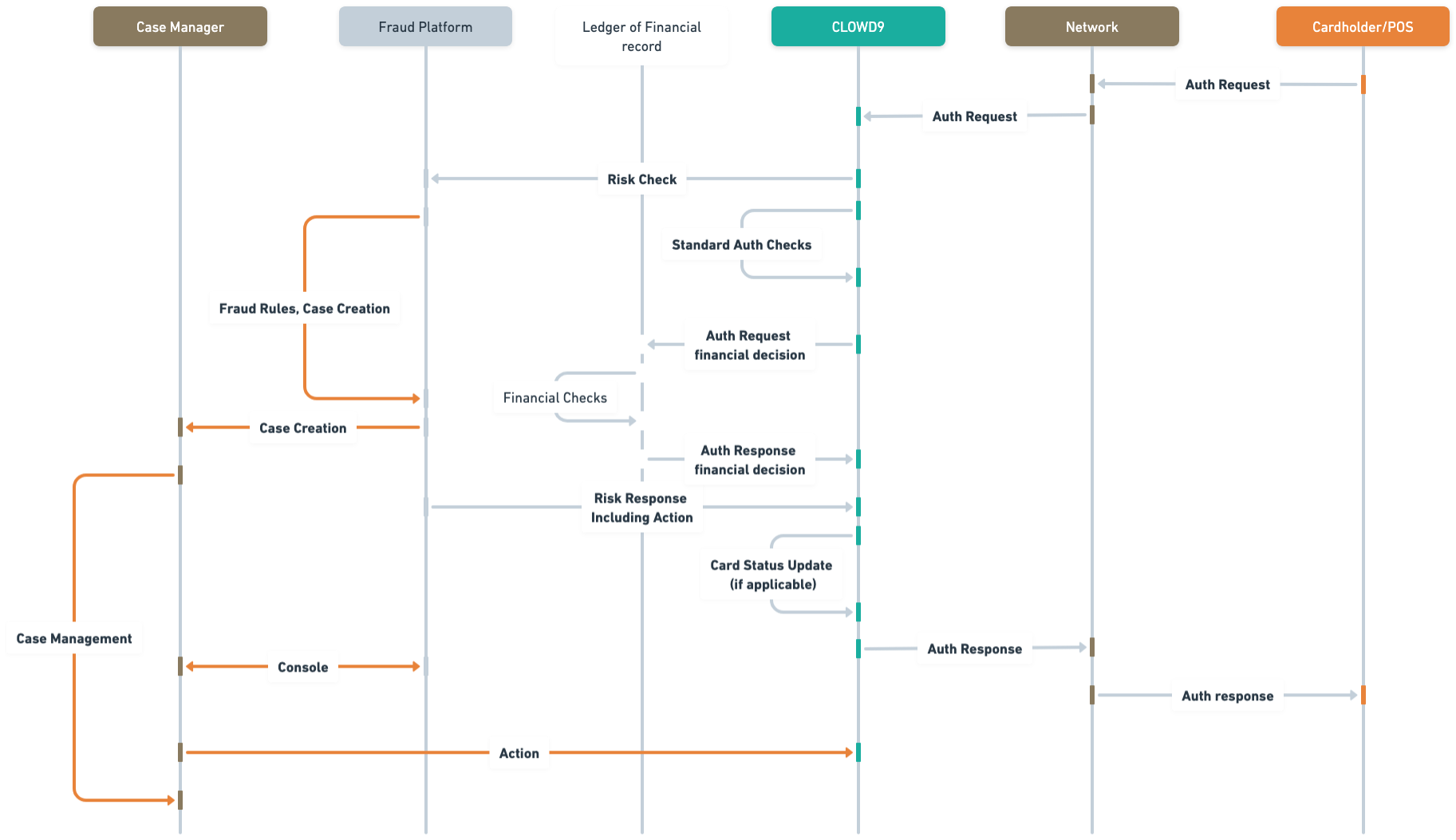Transaction Monitoring
Transaction Monitoring refers to the process of tracking, reviewing, and analyzing payment transactions initiated by cardholders (customers) through the cards issued by financial institutions (issuers) and other financial activities such as credit transactions originating from 3rd parties usually via API.
The goal of Transaction Monitoring is to detect and prevent fraudulent activities, identify suspicious behaviours, and ensure compliance with regulatory standards.
Issuers need to protect themselves and their cardholders from fraudulent activities such as:
- Card theft or loss: Transactions made with stolen or lost cards.
- Card-not-present (CNP) fraud: Fraudulent use of card details in online or phone-based transactions.
- Account takeover: Unauthorized access to a cardholder's account.
- Skimming or phishing attacks: Illicit capturing of card details via external means
Issuers need to identify and flag unusual spending patterns, like:
- High-value transactions inconsistent with past behaviour.
- Transactions in unusual geographical locations.
- Rapid successive transactions.
- Purchases from high-risk merchants or jurisdictions.
When a suspicious transaction is detected, alerts are generated for further review. Usually a fraud or risk anaylst investigates the transaction to determine its legitimacy. Actions might then include:
- Blocking the card.
- Notifying the cardholder.
- Reversing the transaction if necessary.
- Reporting the issue to relevant regulatory authorities.
Monitoring may be real-time or post-event:
- Real-time monitoring: Algorithms to identify, flag and/or block suspicious transactions before they are authorized. This prevents fraud in real time, allowing issuers to block, freeze, or request additional verification.
- Post-event monitoring: Analyses transactions after they’ve been processed to catch any fraudulent or suspicious activity that was not flagged in real-time. It also provides the opportunity for chargebacks or dispute resolutions.
Fraud detection and monitoring is a significant payment ecosystem function and the service is usually provided by dedicated 3rd party suppliers of these systems. As a result CLOWD9 do not operate a fraud detection and monitoring platform directly but have relationships and interfaces with 3rd party fraud tools.
Authorisation Flow - including Transaction Monitoring

Updated 13 days ago